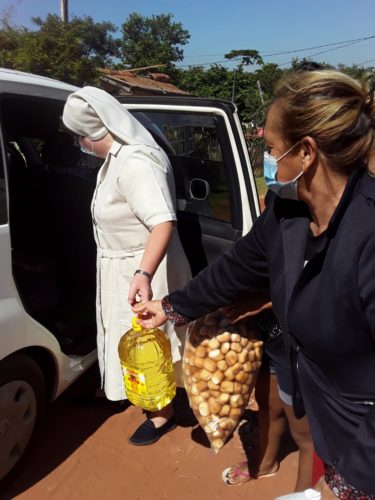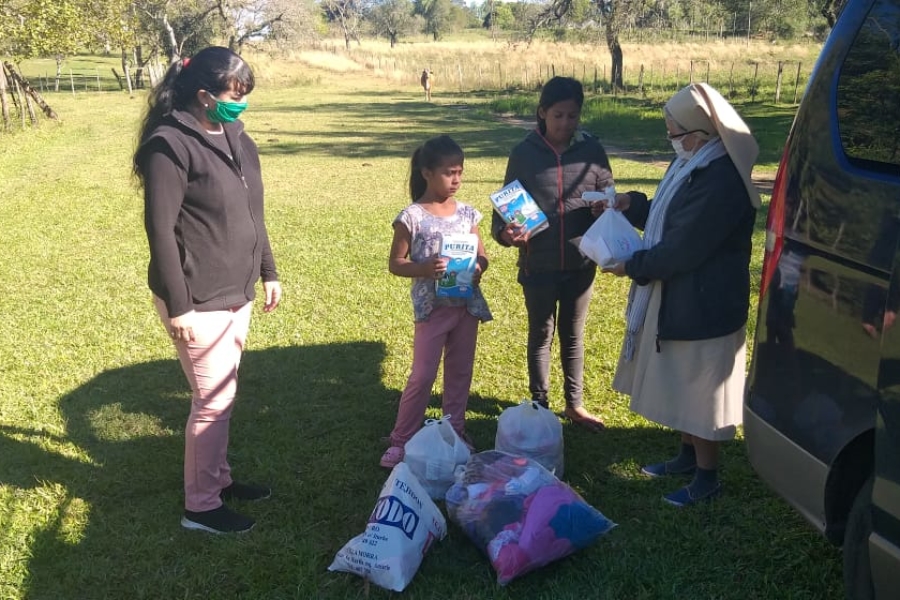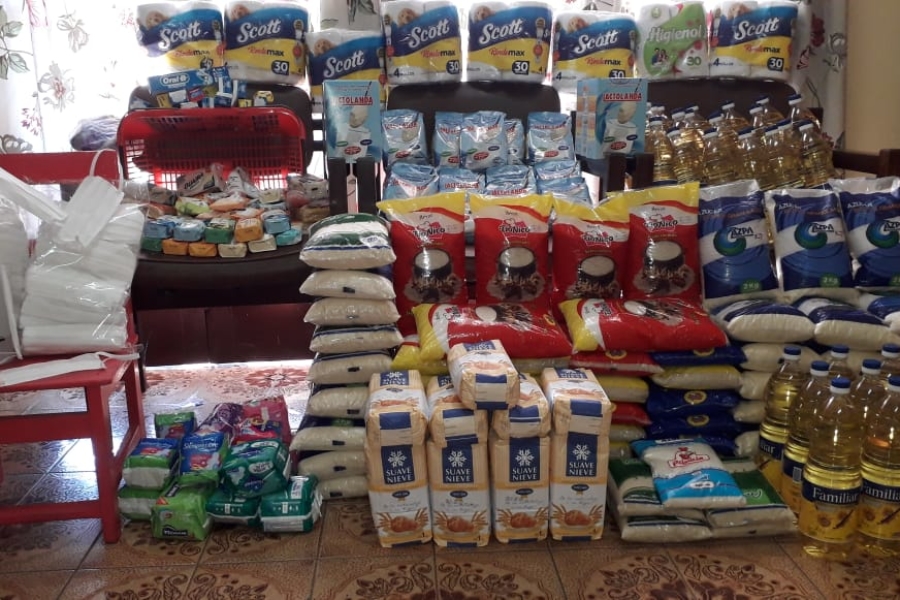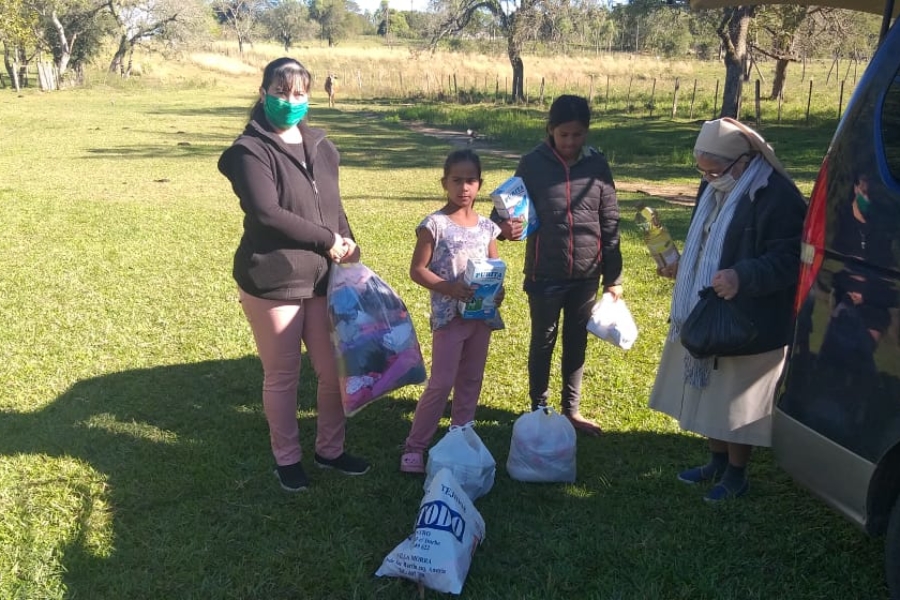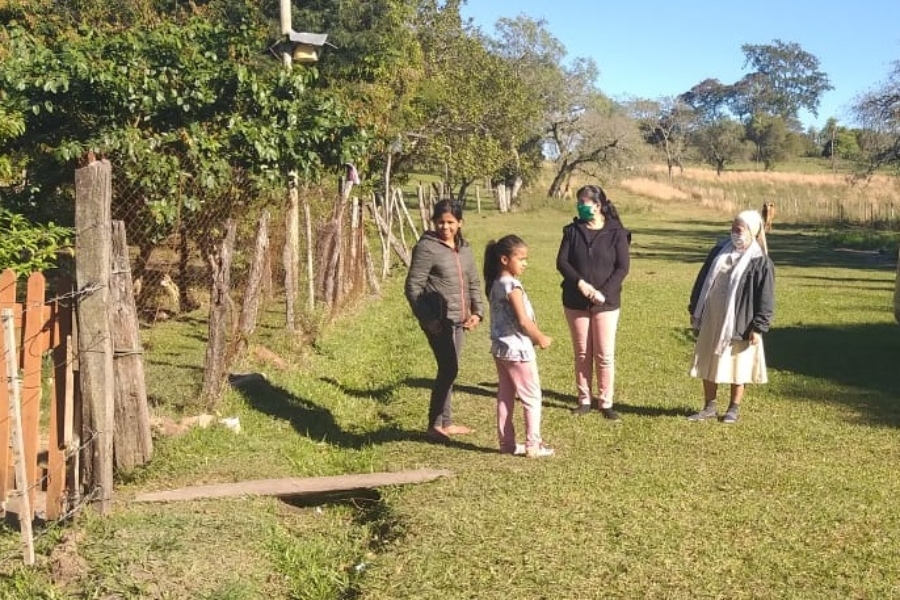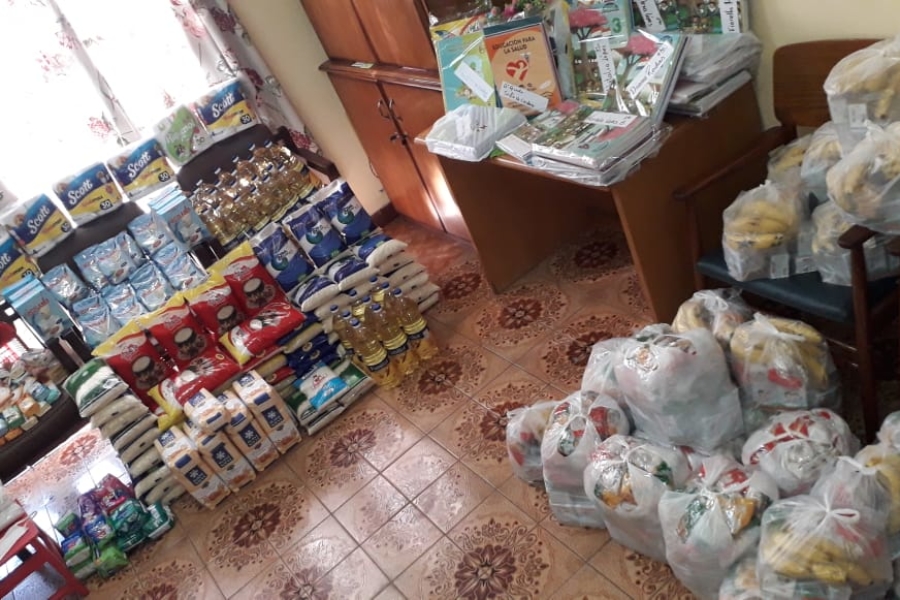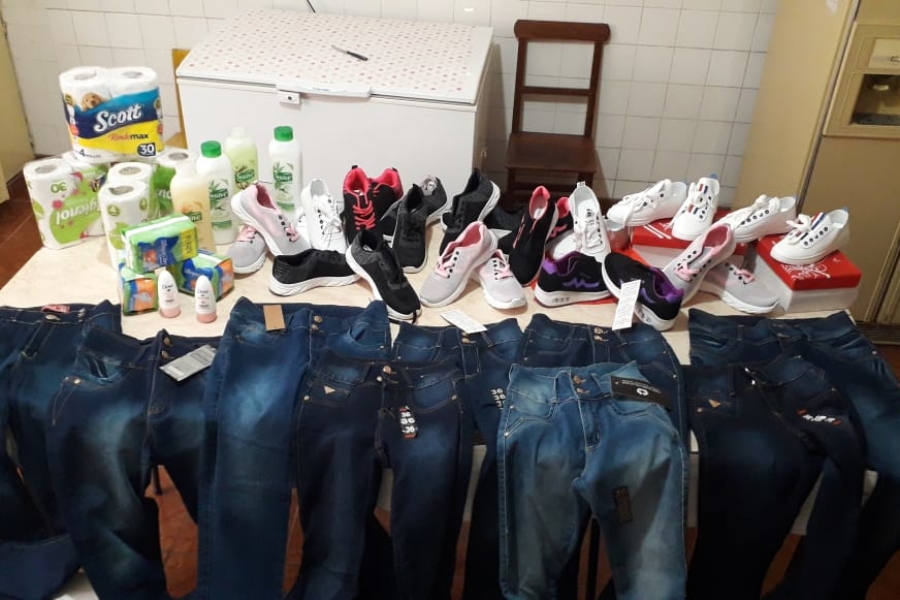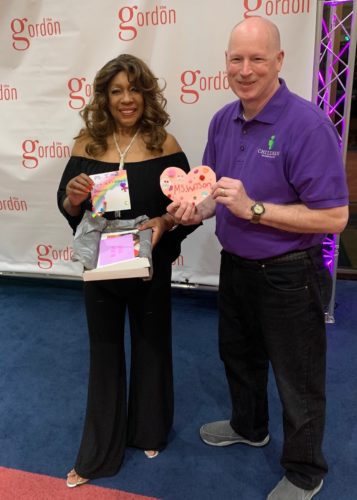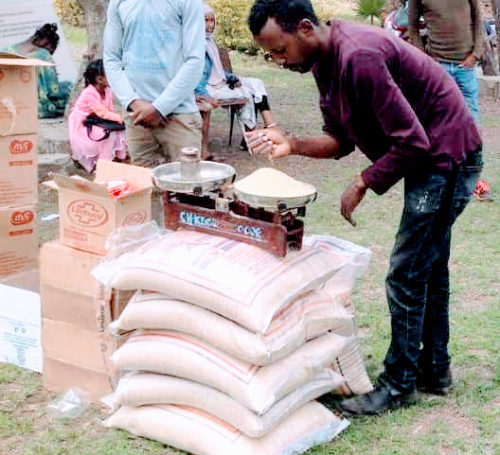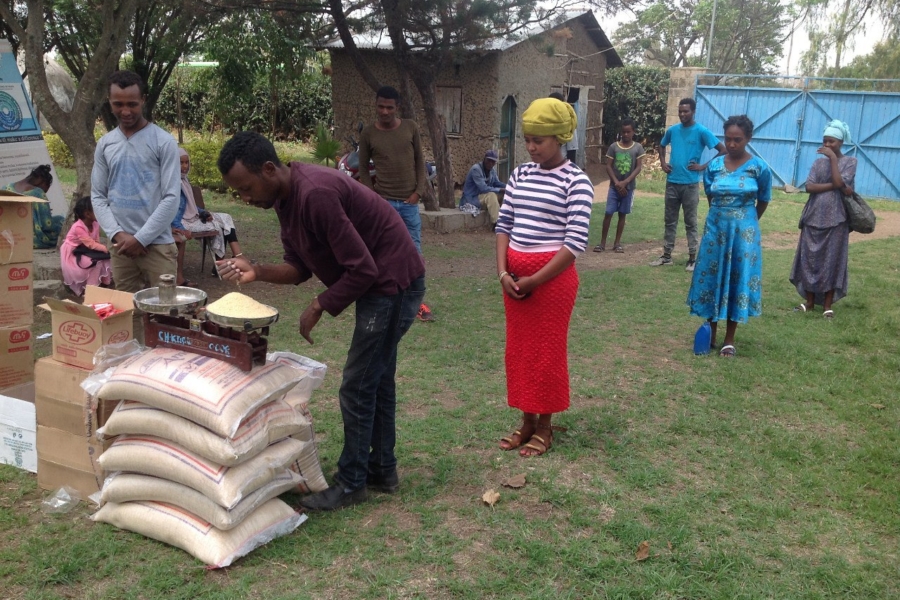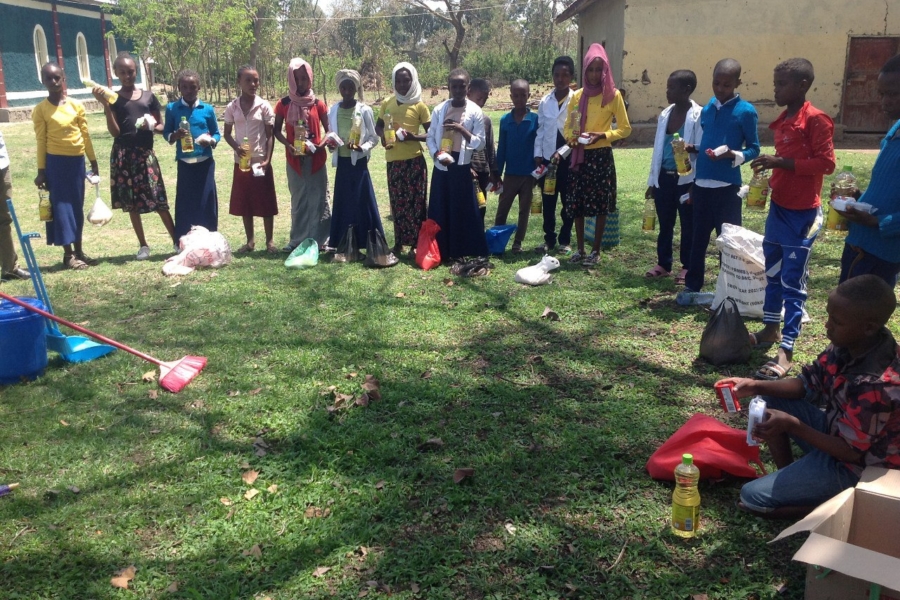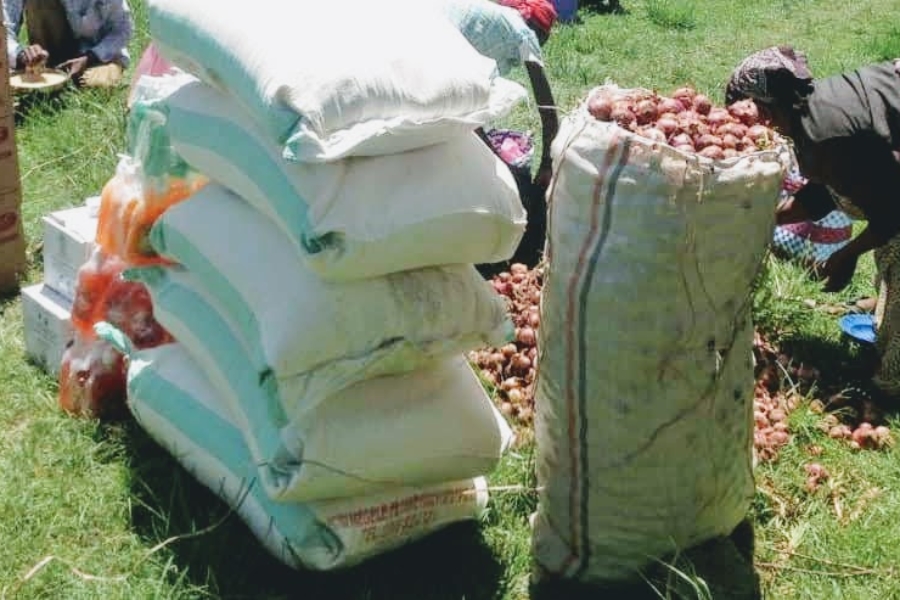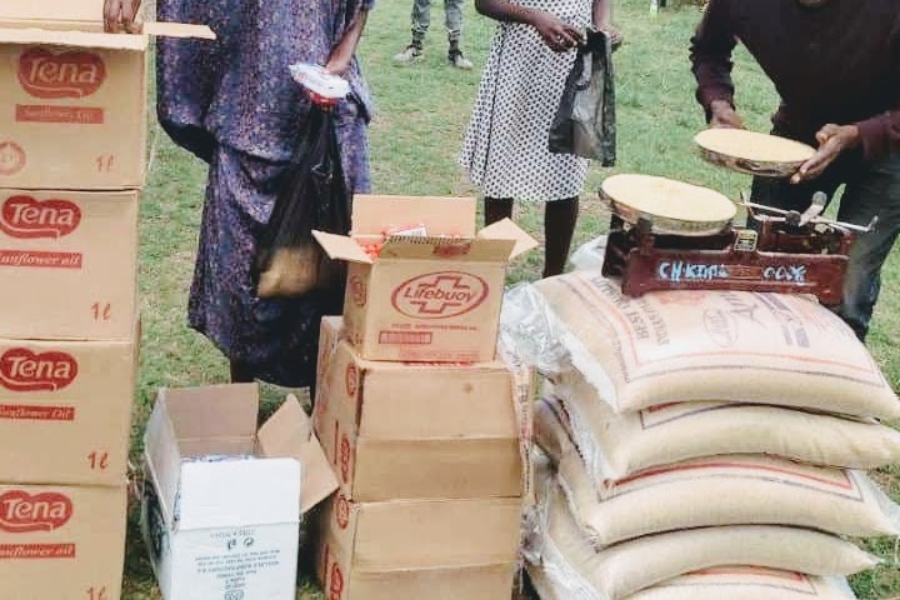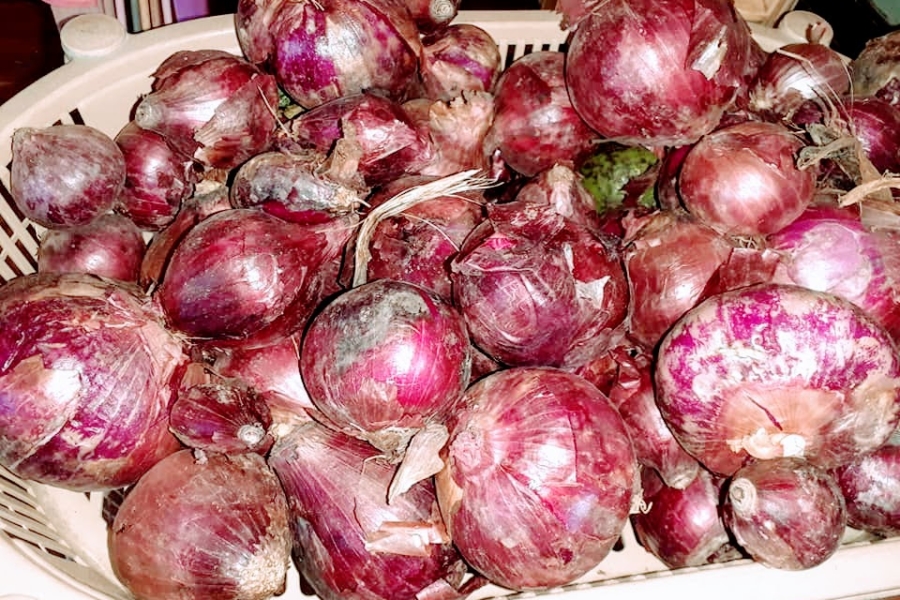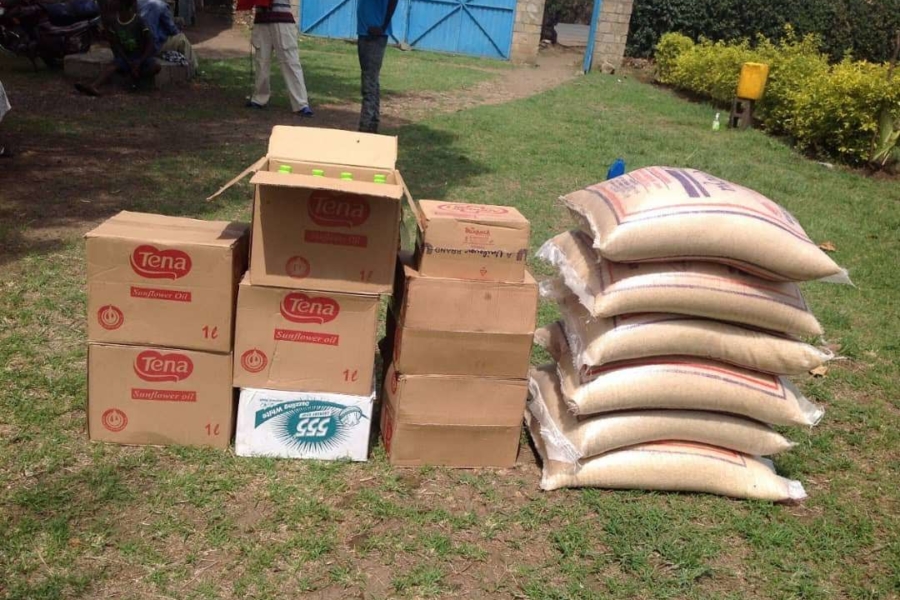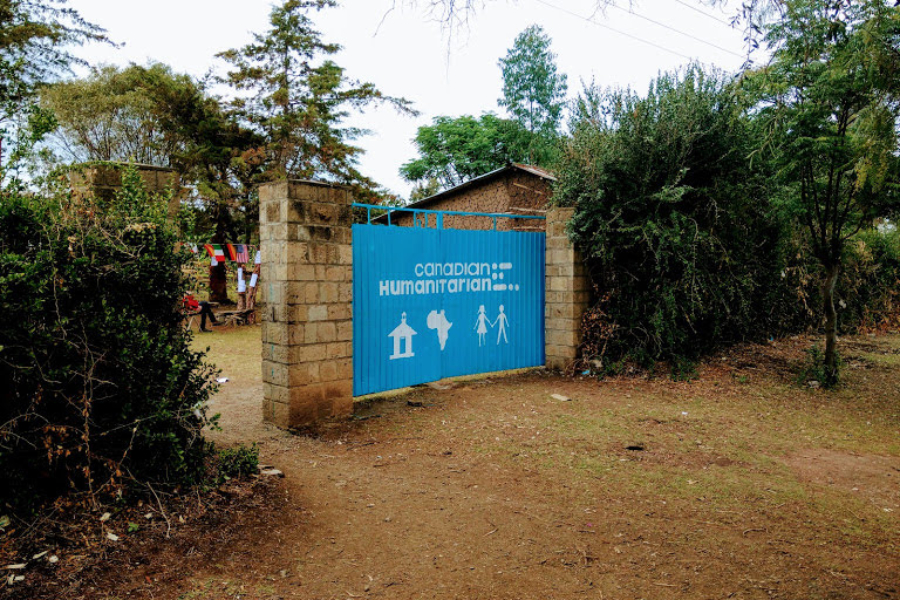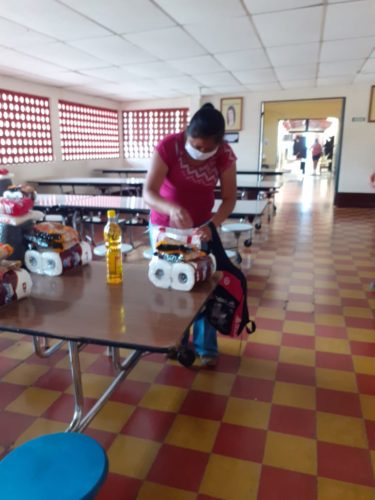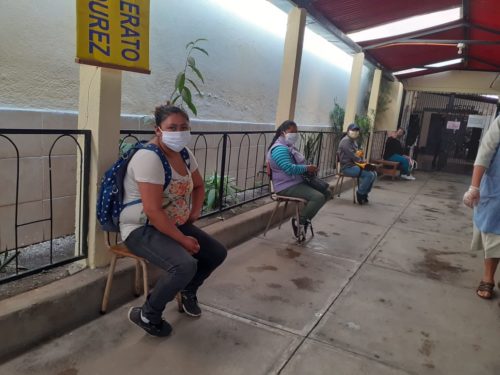As we have seen, the COVID-19 outbreak hit most countries in the world, and our Director of International Programs, Luis Bourdet, has been working to offer support to families in their time of need.
We hear from Luis today about the help we are providing to our affiliated projects in the Philippines, thanks to donations from our sponsors and donors:
We hear from Luis today about the help we are providing to our affiliated projects in the Philippines, thanks to donations from our sponsors and donors.
“I was informed by one of our programs in the Philippines that the families we support are mostly day workers, so most of them have lost their jobs due to the COVID-19 restrictions. In response, they are providing food bags to families in addition to items purchased with sponsorship funds,” said Luis.
“The government of the Philippines has authorized one-time cash support to certain families under certain criteria. The government will give cash assistance to low-income families, solo parents, pregnant or lactating mothers, senior citizens, and some taxi drivers.”
“Not all Filipinos will receive cash assistance. The families of the children in our sponsorship program are qualified to receive the cash assistance from the government – roughly $98,” explained Luis.
“Of course, this one-time support does not cover the cost of living expenses for a month, as you can imagine. With the funds we have provided, our coordinators purchased rice, produce, bread and canned goods, as well as other fresh food items.”
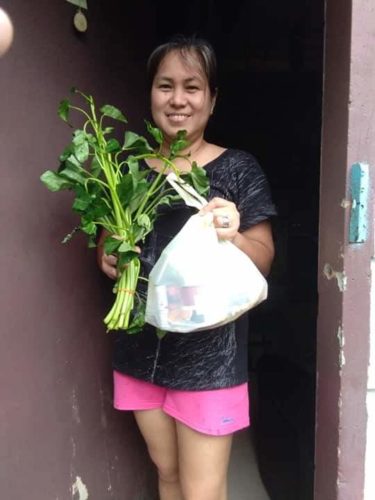
A mother of one of our sponsored children receiving food at her home. Our volunteer coordinators are making home deliveries of essential items during the COVID-19 outbreak.
“The provision of the aid has been complicated for our coordinators to distribute as a result of the mandatory quarantine. Children and parents have to come to the center wearing a mask and following strict distancing rules. Other items are dropped off at the homes of our sponsored children by our coordinators.”
A message from our volunteer coordinator at Fortune’s Children at Parang
“Greetings!
The beginning of the year was a busy one for the students. For the month of January, they were able to complete four lessons, which culminated in a unit test. The lessons continued well into the month of February. The last class was held on March 10, and then class was suspended.
March was the beginning of the COVID-19 spread in our country. On the evening of March 9th, President Duterte formally declared a state of public health emergency in the Philippines. [He suspended] all classes in public and private schools, in all levels, in Metro Manila from March 10-14 as a precaution.
As the cases continued to increase, [on March 12th], the president announced a partial lockdown on Metro Manila beginning on midnight of March 15th. This meant that most of our children’s parents had to stop working. Others who are included in essential services were allowed to either [work] from their homes or go to work on a non-daily basis.
The families of Children Incorporated sponsored kids were all greatly affected by this health emergency, and Damayan at Tiyaga Foundation responded by distributing food packs to them as well as [to] our less fortunate brethren in nearby communities.
Our coordinators worked in three groups and bought the necessary items for the kids: hygiene kits, canned goods and noodles, snacks, bread, milk, oatmeal, and other food items that the kids requested.
It was a challenging task, as there were limits to how much of some particular items (like milk, noodles, canned goods) we could buy in the groceries. Only one person per household was allowed to go out for grocery runs, hence, buying all the food pack items took from two to four days at most. We were able to distribute food packs in three waves to the less fortunate, including [to] the families of our [Children Incorporated] kids. We included rice, canned goods, noodles, biscuits, coffee, sugar, bread, some vegetables, and milk in our food packs. We also received a lot of requests for milk, as there are really a lot of families with small kids in the communities where the [Children Incorporated] kids live. These food packs cost about P300 or $6 each. About 50 families in the neighboring communities were given these food packs in different batches.
During the [second] week of April, we received the sponsorship funds, and [the] last week of April [we received funds from the] Hope in Action Fund for the children. Our coordinators worked in three groups and bought the necessary items for the kids: hygiene kits, canned goods and noodles, snacks, bread, milk, oatmeal, and other food items that the kids requested. We were able to finish our distribution by May 3rd, a Sunday.
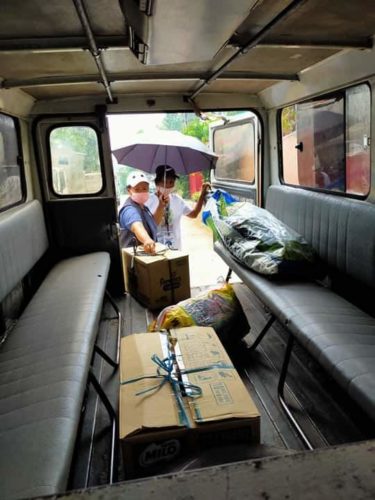
Our volunteer coordinators are working hard to get supplies to children and families during school closures.
Presently, we are still under enhanced community quarantine tentatively until May 15th. Life as we know it has changed a lot. The children are yet unsure of whether they will be allowed to physically return to school for the coming school year, but the Education Department has already announced that classes will resume in August, albeit through a modified delivery. Unless a vaccine for the virus is released, our kids are confined to their homes and not allowed to go out for any reason. This is for their own safety.
On behalf of the [Children Incorporated] kids, we are very grateful to the sponsors who have continued helping them by sending their monthly subsidies and gifts. We pray for all of you at Children Incorporated, as well as our sponsors, that you may remain in good health until this pandemic has passed.
God bless us all,
Joy”
About the Philippines
The Philippines comprise a vast island nation in Southeast Asia. This archipelago of more than 7,000 islands boasts sandy beaches, towering mountains and volcanoes, tropical rainforests, and an incredible wealth of natural resources and biodiversity. Humans have called these islands home for thousands of years, predating historical records. Today, the Philippines incorporate a staggering number of languages, ethnic groups, religions, and cultures. Despite its status as an emerging market, however, nearly half of all Filipinos still earn less than $2 a day. Adequate sanitation, access to healthcare, and access to potable water are still daily challenges in this widely underdeveloped country, which is also prone to typhoons, earthquakes, and volcanic activity.
About our affiliated projects in the Philippines
Pinagpala Children’s Center
Tagaytay City, Philippines
Located in the city of Tagaytay, the Pinagpala Children’s Center was established by members of a local church in 2000 to provide educational assistance to local needy children and their families. The name Pinagpala means “blessed.”
The Pinagpala Children’s Center recognizes that providing for the educational needs of impoverished children is an essential step in giving these deserving young minds the tools necessary to break the cycle of poverty and rise above the problematic socioeconomic circumstances that they face. The center receives its funding from individual contributions and organizations like Children Incorporated. They envision many goals for future growth, including building a multipurpose community center with a media center or library. This will facilitate training programs, afterschool care, and recreational activities for children and their families, expanding their educational assistance programs to improve the children’s lives further and providing safe transportation to and from school each day.
Fortune’s Children at Parang
Parang, Marikina, Philippines
In Marikina’s Fortune neighborhood, most residents rent modest homes — typically little more than shacks constructed from scrap wood and corrugated metal sheets, with no running water, indoor plumbing, or even beds. Eight to twelve family members often share these dwellings.
Tragically, hunger, malnutrition, health issues, and lack of sufficient clothing often cause children to miss school or drop out altogether. Established by the Damayan at Tiago Foundation, the Fortune’s Children at Parang functions as both a school and daycare center, which also offers community-building programs to assist teenagers and adults facing poverty-induced issues. In this way, children and their families may rise above the difficult socio-economic circumstances from which they come.
Visayans Community Center at Bliss
Sagkahan, Tacloban City, Philippines
The Bliss Housing Project in Sagkahan, where the Visayans Community Center at Bliss is located, is a community established by the Filipino government for Tacloban’s poor. Only fifteen percent of residents own the land on which they live. Most locals inhabit concrete dwellings, but many others live in shacks fashioned from nipa palm shingles, bamboo, and castoff boards.
Amid this devastating poverty and its socioeconomic effects, the Visayans Community Center at Bliss serves as a beacon of hope. Founded by the local group, Volunteer for the Visayans, the center is dedicated to facilitating community development, providing healthcare, and promoting education.
***
How do I sponsor a child in the Philippines?
You can sponsor a child in the Philippines in one of three ways: call our office at 1-800-538-5381 and speak with one of our staff members; email us at sponsorship@children-inc.org; or go online to our donation portal, create an account, and search for a child in the Philippines that is available for sponsorship.
SPONSOR A CHILD
